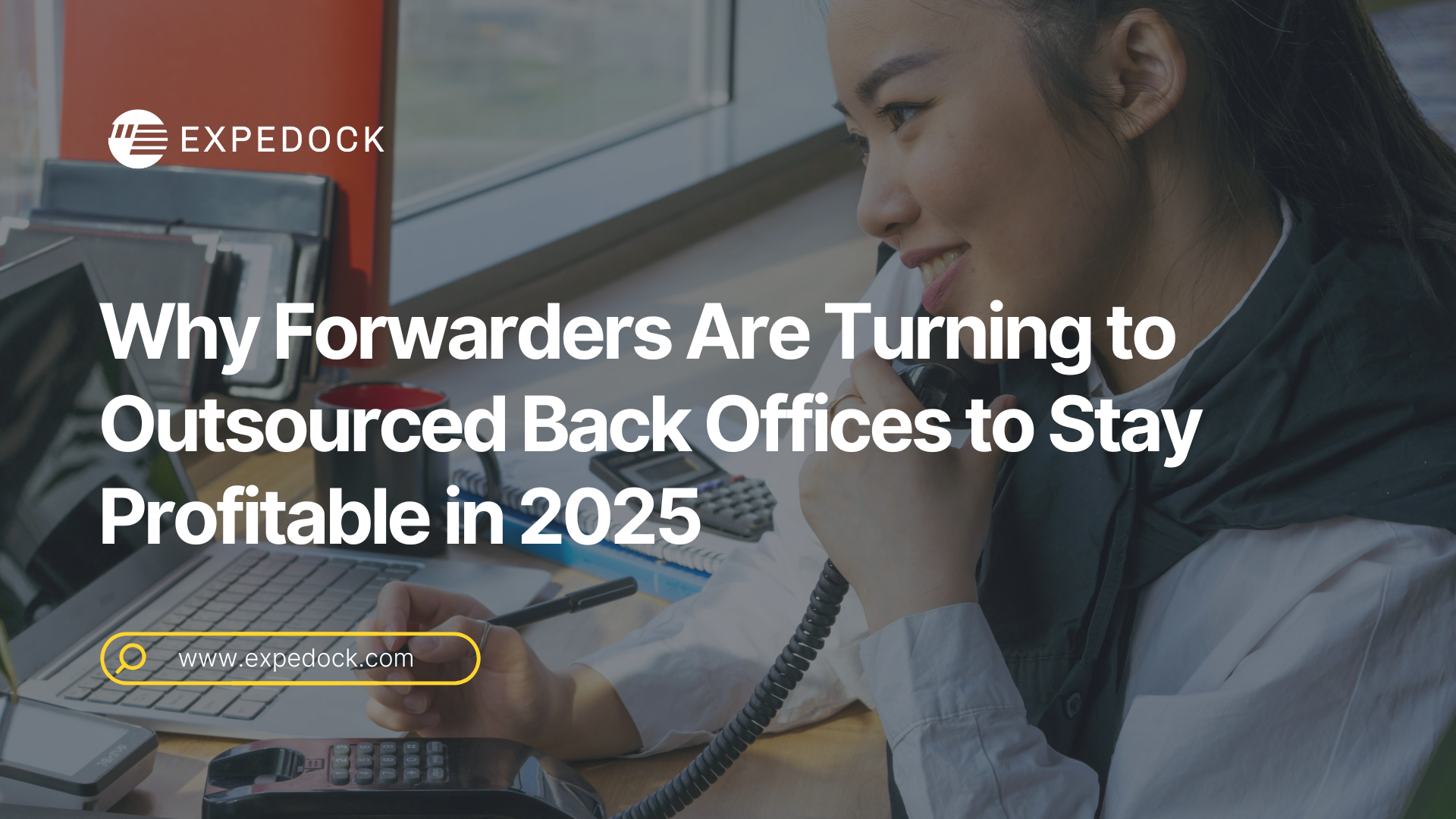Discover how freight forwarders use outsourced back-office teams to cut costs, boost accuracy, and stay profitable amid rising logistics costs in 2025.

The freight forwarding industry is under pressure like never before. Between shrinking margins, volatile global trade, and rising labor costs, maintaining profitability has become a constant balancing act. As we enter 2025, more forwarders across the US, Europe, and Australia are finding a strategic advantage in one solution: outsourcing their back-office operations.
Outsourcing isn’t just a cost-cutting move anymore—it’s a growth enabler that allows freight forwarders to focus on customer relationships, sales, and strategic expansion while a skilled offshore team handles time-consuming documentation, billing, and data entry tasks with speed and precision.
According to Statista’s Global Freight Forwarding Report, the global market continues to expand but faces heavy pressure on margins—making efficiency and scalability more important than ever.
Over the past few years, freight forwarders have faced a “margin crunch.” Fuel costs, carrier rate volatility, and regulatory complexity have all risen—while customers demand faster quotes and real-time visibility. At the same time, the cost of hiring and retaining qualified local staff has surged. In major logistics hubs like Los Angeles, Hamburg, and Sydney, administrative salaries have climbed 20–30% since 2020.
Industry data from FreightWaves highlights how operational costs for forwarders have grown faster than revenue, especially among small to mid-sized players. Outsourcing back-office functions helps forwarders offset high operational costs without sacrificing service quality. By leveraging global teams, they gain the flexibility to scale up or down depending on shipment volumes—something traditional hiring simply can’t match.
Modern outsourcing partners specialize in freight documentation, data automation, and customer service support for logistics providers. These teams are trained in systems like CargoWise, Magaya, and Descartes, handling critical tasks such as:
Combined with document automation tools, outsourcing drastically reduces human error—often improving data accuracy to over 99%. For forwarders, that means fewer disputes, fewer customs delays, and happier clients. The International Federation of Freight Forwarders Associations (FIATA) emphasizes the growing importance of data accuracy and standardized documentation for compliance—a key reason forwarders now invest in specialized back-office support.
Freight forwarding never sleeps—and neither should your operations. With global outsourcing hubs in the Philippines, India, and Eastern Europe, forwarders can now offer round-the-clock coverage without burning out local teams.
When one office closes in California or Rotterdam, another team overseas continues processing shipments, responding to customers, and updating documentation. This continuous workflow keeps jobs moving and reduces turnaround times by up to 40%—a competitive edge in today’s fast-paced market.
While cost reduction remains a key driver, the real value of outsourcing lies in focus.
By delegating repetitive administrative tasks, forwarders free up internal resources to concentrate on:
Simply put, outsourcing lets forwarders do what they do best—managing shipments and growing their business—while specialists handle the paperwork and process efficiency behind the scenes.
Not all outsourcing providers are created equal. The most successful partnerships are with logistics-specialized outsourcing companies—those that understand freight workflows, industry compliance, and platforms like CargoWise.
When evaluating a provider, forwarders should look for:
The right partner doesn’t just execute tasks—they become an extension of your operations, improving efficiency and customer satisfaction simultaneously. As Logistics Management reports, forwarders with strategic outsourcing partnerships see measurable gains in scalability and operational resilience—especially during peak shipping seasons or market disruptions.
As we move through 2025, freight forwarders face an industry defined by automation, globalization, and rising expectations. Those that thrive will be the ones that rethink traditional operations and embrace outsourcing as a strategic advantage.
Outsourced back-office teams aren’t just about saving money—they’re about building resilience, enabling 24/7 service, and fueling long-term growth in an increasingly competitive logistics landscape.
For forwarders looking to stay profitable and future-ready, the time to outsource is now.
Let us help you optimize business processes and deliver unrivaled customer experience to your clients.